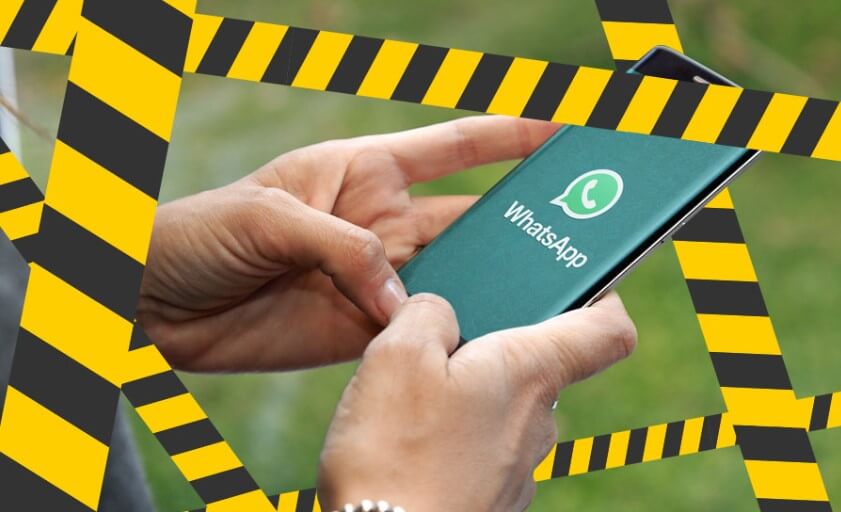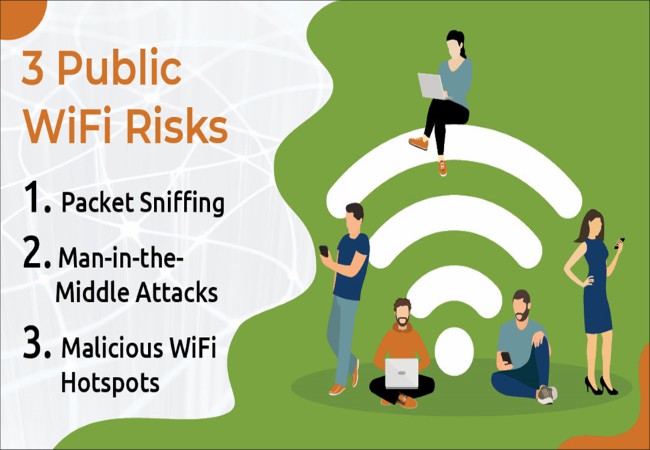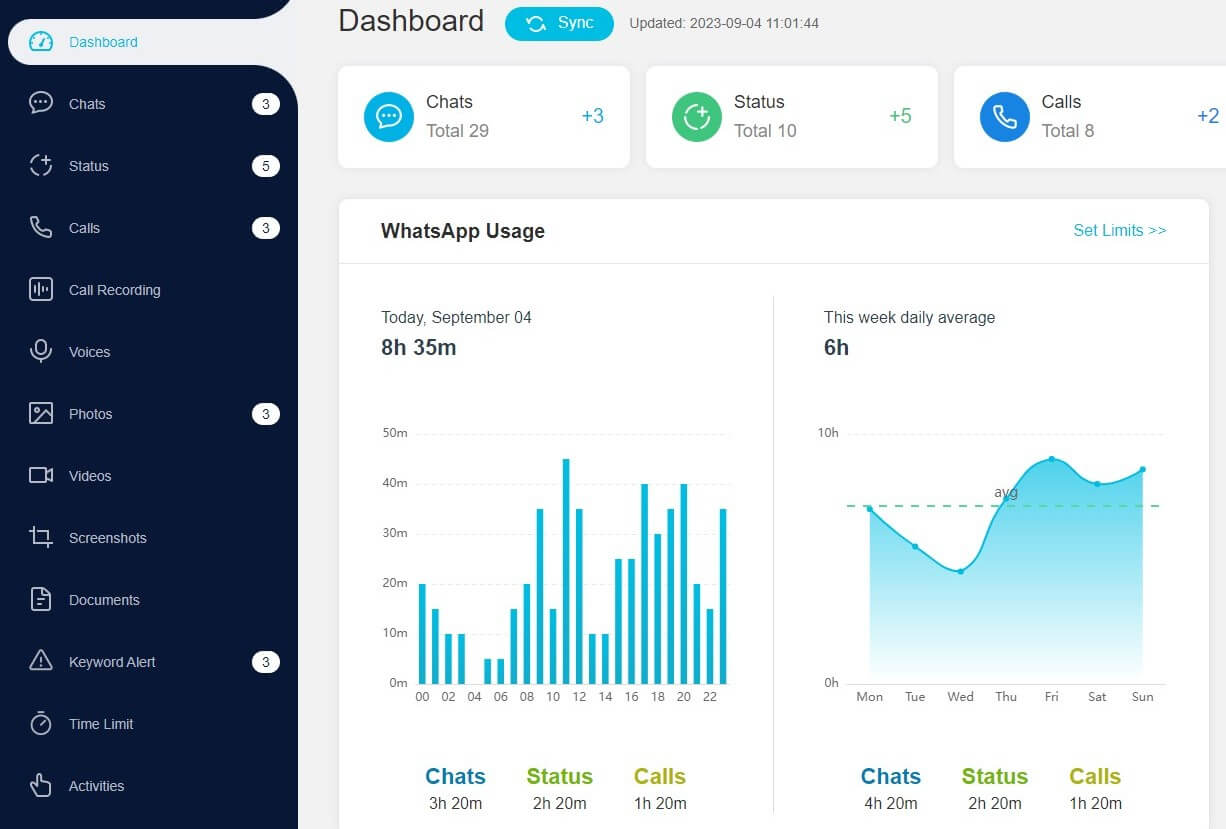ClevGuard Support: Monitor Devices with Others' Permission.
Do you like using WhatsApp? With over two billion users in more than 180 countries, it's no surprise that many people rely on WhatsApp to stay connected with friends and family. However, while the app may be convenient, there is a dark side to WhatsApp that users should be aware of. From privacy concerns to security risks, here's what you need to know about the dangers of using WhatsApp.

Table of Contents
Part 1: The Risks and Dangers of Using WhatsApp
Privacy Concerns
One of the biggest concerns when it comes to using WhatsApp is privacy. While the app uses end-to-end encryption to protect your messages from being hacked, there are still ways that your privacy can be compromised. For example, WhatsApp collects a lot of data about its users, including their phone numbers, contacts, and even their device information. This data is then used for targeted advertising and other purposes, which can be a cause for concern for those who value their privacy.
Another privacy concern with WhatsApp is the fact that the app is owned by Facebook. While WhatsApp operates separately from Facebook, there have been concerns about how Facebook may be using WhatsApp's data. For example, Facebook has been known to use data from WhatsApp to suggest friends on its own platform, which can be a cause for concern for those who want to keep their social media profiles separate.

Security Risks
Another major concern with WhatsApp is security. While the app is generally considered to be secure, there have been instances where security vulnerabilities have been discovered. For example, in 2019, it was discovered that a vulnerability in WhatsApp's code allowed hackers to remotely install spyware on users' devices. This vulnerability affected both Android and iOS devices, and could be triggered simply by receiving a WhatsApp call.
In addition to security vulnerabilities, there are also risks associated with using WhatsApp on public Wi-Fi networks. Since public Wi-Fi networks are often unsecured, it's possible for hackers to intercept your messages or gain access to your device while you're connected to them. To protect yourself, it's best to avoid using WhatsApp on public Wi-Fi networks whenever possible.

Misinformation and Fake News
Another concern with WhatsApp is the spread of misinformation and fake news on the app. Since WhatsApp allows users to forward messages to multiple recipients at once, it's easy for false information to spread quickly. This has been a particular problem in many countries that WhatsApp has been used to spread rumors and hoaxes that have led to violence and even deaths.
To combat this issue, WhatsApp has implemented a number of measures to limit the spread of misinformation on the app. For example, the app now limits the number of times a message can be forwarded, and includes a label on forwarded messages to indicate that they were not created by the sender. However, these measures have not been enough to completely stop the spread of false information on the app.

Cyberbullying and Online Harassment
Another risk associated with using WhatsApp is the potential for cyberbullying and online harassment. WhatsApp allows users to send messages without a true identity, which can reduce the cost for people to use the app to harass and bully others. This is particularly concerning for children and teenagers, who may be more vulnerable to online harassment.
WhatsApp has raised the awareness of this issue by implementing several features to prevent cyberbullying and online harassment. For example, the app allows users to block and report other users and includes a feature that allows users to control who can add them to group chats. However, these features are not foolproof, and it's still possible for users to be harassed on the app.

Surveillance Concerns
WhatsApp's end-to-end encryption has made it popular among activists and journalists, who rely on the app for secure communication. However, this same feature has also made it a target for surveillance by authoritarian regimes and intelligence agencies.
In 2019, it was reported that WhatsApp had been used to hack the phones of activists and journalists in countries such as Saudi Arabia and the United Arab Emirates. The exploit, which was traced back to Israeli spyware maker NSO Group, allowed the attackers to gain access to the targets' messages and call logs.
This incident showed that WhatsApp's encryption can be vulnerable to targeted attacks by state-sponsored hackers. It also raised questions about the responsibility of social media companies to protect the privacy of their users.
What Do We Need to Consider?
As for WhatsApp, the company has a responsibility to address the privacy and security concerns of its users. This includes being transparent about its data practices, investing in digital literacy and fact-checking, and taking steps to protect its users from targeted attacks and surveillance.
The Facebook-owned messaging app, WhatsApp, has been under fire in recent years for its privacy practices and security concerns. The app's end-to-end encryption, which is meant to provide secure communication, has also become a double-edged sword for law enforcement and government agencies.
Related Read: Is it legal to monitor kid’s WhatsApp?
How to Protect Kids on WhatsApp?
To achieve this goal, you should know what kids chatting about on WhatsApp. Then you need a WhatsApp monitoring app. Don’t worry, if you’re using it to protect your kid's online safety, there is not much law restriction for you.
Now, let’s see how to monitor kid’s WhatsApp without their knowing:
Step 1. Get the WhatsApp monitoring app first.
KidsGuard for WhatsApp is a powerful monitoring tool that allows you to monitor kid's WhatsApp on both Android and iOS. It offers advanced features and a user-friendly interface, making it an ideal choice for parents and employers.

KidsGuard for WhatsApp --Why Choose KidsGuard for WhatsApp As the First Option?
- Available with all versions of Android and iOS device.
- Allow to read more that 10 types of WhatsApp data, including WhatsApp chats, status, call history, voice messages, pictures on somene’s WhatsApp account.
- Recover recalled/deleted WhatsApp messages, voice and pictiures.
- Able to set alerting words to protect your kids/ family from being harming.
- Easy to use, user-friendly.
Step 2. Download KidsGuard for WhatsApp and Install it on Kid’s Phone
After buying KidsGuard for WhatsApp , the next step is to activate its monitoring features. But how? First, visit www.installapk.net and slide to download it on your kid’s phone.

Next, follow the on-screen setup instruction to activate monitoring features.

Step 3. Monitor your kid’s WhatsApp on your device.
Now, you only need to visit the WhatsApp monitoring dashboard on clevguard.com. Then, you can monitor WhatsApp data on your computer or phone.

Don’t miss any latest messages on your kid’s WhatsApp. KidsGuard for WhatsApp can monitor WhatsApp chats, calls, call logs, statuses, and so on. Moreover, you can even get recorded calls as well as automatically WhatsApp screenshots, and download them by using KidsGuard for WhatsApp .
Related Read: How to take screenshots of view-once images on WhatsApp?
Conclusion
While WhatsApp's end-to-end encryption is meant to provide secure communication, it has also created a dark side that is worth examining. The controversies surrounding the app, such as data sharing, fake news, and surveillance concerns, highlight the tension between data privacy and the business model of social media companies.
As users, it is important to be aware of the risks and take steps to protect our privacy. This includes being mindful of the information we share on social media, using strong passwords and two-factor authentication, and being vigilant against phishing and other scams.
If you're worrying about cyberbully or spam on your kids' WhatsApp, try KidsGuard for WhatsApp now. With powerful WhatsApp monitoring features, you can track kids' callings and chats secretly.








